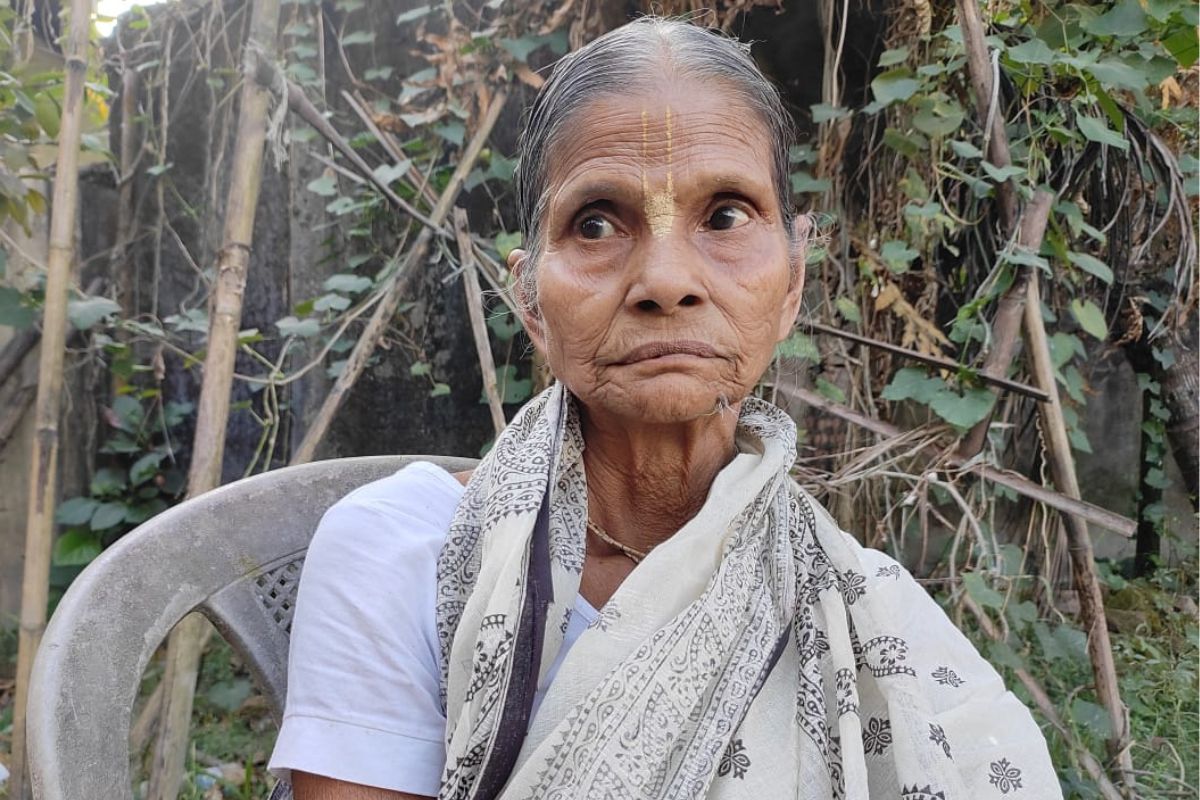GUWAHATI: After a three-year-long legal battle, the 73-year-old daughter of freedom fighter Seje Bala Ghosh, a resident of Bongaigaon district of Assam, has finally been deemed a citizen of India.
She had received a notice from a foreigners’ tribunal in March 2020, and has now been able to prove that she is not a Bangladeshi illegal immigrant.
After receiving the order copy on November 20, Ghosh said that questioning her citizenship was an insult to her father’s sacrifices and just declaring her as an Indian was not enough. However, she did not ask for anything specific as such.
“My father was a freedom fighter. He was a close associate of freedom fighter Chandra Shekhar Azad and had sacrificed a lot for this country’s freedom. But after seven decades of independence, his daughter was called an illegal migrant. That is a matter of shame,” she said.
Remember Seje Bala Ghosh, the freedom fighter’s daughter asked to prove her Indian identity? We’re thrilled to share that she has finally been officially declared Indian in #Assam CJP stands proud in supporting her journey to rightful recognition #NRCAssamhttps://t.co/lc2n8fgRcJ
— Citizens for Justice and Peace (@cjpindia) November 23, 2023
Ghosh, a devotee of Lord Krishna, lives alone at her house in the district’s Salbagan village. The freedom fighter’s daughter said, “Maybe this was written in my destiny but those who caused this humiliation to my dignity, will pay for this. My Krishna is watching everything.”
According to her, a police team had come to her house carrying the FT notice in March 2020, right before the pandemic lockdown started, “I couldn’t read it and I asked the police to tell me what is my crime. They said, the court (FT) believes that I am an illegal migrant from Bangladesh and I have to appear before the court” she said. During the first lockdown, members of Assam-based NGO, Citizens for Justice and Peace (CJP) reached out to her to provide them legal support.
The legal support team had appointed advocate Dewan Abdur Rahim to present Ghosh’s case in front of the tribunal.
Rahim said that documents show that Seje Bala’s father, Digendra Chandra Ghosh and Barada Bala Ghosh had come to India in 1947, to escape religious persecution in Bangladesh (formerly East Pakistan) and had settled in Assam.
Freedom fighter Digendra’s name had first appeared in the National Register of Citizens (NRC) in 1951, the same year when Seje Bala was born. The advocate added that a passport had also been issued in his name in 1954, while his name appeared on the voters’ list in 1958 for the first time.
Rahim said that his team had presented at least 13 valid documents showing that Seje Bala’s family was in Assam before 1951. “With the documents related to individual identities of Digendra Chandra Ghosh and Seje Bala, we also submitted documents to establish their relationship (as father and daughter). All the documents were found valid in FT’s verification,” he said.
Before making her first appearance in front of the FT in 2021, Seje Bala had broken her left leg in an accident and since then has been bound to a wheelchair. She had first appeared before the FT in 2021.
The FT observed that Seje Bala’s family had moved to India in 1947 and stayed here. The tribunal members mentioned that the documents are valid and show that her father’s name was recorded in the aforementioned documents, while her mother’s name is recorded in a Donation Slip of 1962 and the voter list of 1966 in Mangaldoi.
On the other hand, Seje Bala’s name has appeared in the voters’ lists of 1989, 1997, 2005, 2011 and 2020 in Bongaigaon. She was also given an Other Backward Classes certificate and ration card. She had also submitted a relationship certificate (with her father) issued by the Chairman of the Bongaigaon Municipal Board in 1994 and the FT considered this as a valid document.
According to advocate Tanya Laskar, there are two ways by which an FT can issue notice — through an electoral roll revision by election officers and through reports by the police’s border department.
“When the election officers find irregularities in names and details of voters, they put a mark on the list and send it to police. In the other methods, the border department, under section 3 of the Foreigners Act, sends a list of doubtful citizens to the FT,” said Laskar.








